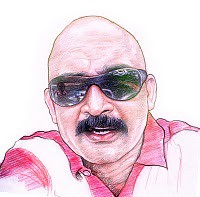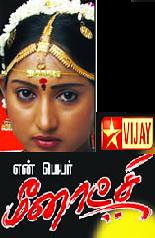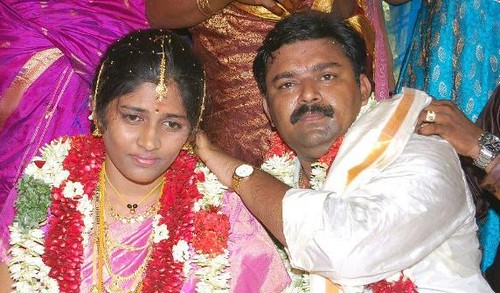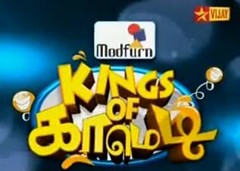The revenue growth for cable and satellite broadcasters in India will moderate from 20 per cent in 2008 to 16 per cent in 2009, with total sales reaching over $2.7 billion. Advertising will account for 67 per cent of the revenue mix while subscription will make up for the remaining 33 per cent, Media Partners Asia (MPA) says in its latest report. The report, which is part of 'Asia Pacific Pay-TV and Broadband Markets 2009' series, also projects that ad sales growth will moderate to 7 per cent in 2009. And, with the notable exception of Sun TV, most major broadcasters are likely to see their earnings dip during 2009. An alarming element in the TV channel cost base remains placement (carriage) fees, paid out to multi-system operators (MSOs) and DTH platforms to gain placement on the TV dial. According to MPA estimates, TV channels in 2008 extracted $700 million in subscription from cable and DTH satellite distribution, but spent half of this amount on placement fees.
Pay-TV subscription revenues are expected to grow at a CAGR of 12 per cent over the next decade to reach $13 billion by 2018. Out of this $7.1 billion will come from analog subscription fees, $5.7 billion from digital TV subscription, and $500 million from HDTV, personal video recorder (PVR), video-on-demand (VOD) and pay-per-view (PPV) services. MPA also predicts that after a significant softening over 2009-10, pay-TV advertising will revert to double-digit growth from 2011 onwards, and touch $4.7 billion by 2018. Says MPA executive director Vivek Couto, "India's economy and its consumer class can look forward to a prosperous future in the long term. This is encouraging for consumer proxies such as media in particular. But growth without value and profit is of little consequence. As a result, four key inter-related areas need refocusing with a positive resolution: business models; the investment case; regulation; and market structure."
"There are clear leaders in both content and distribution but both areas have limited earnings visibility in the near-term. The biggest concern is the availability of cash and new funds for emerging players in content and distribution, with the key links in the pay-TV industry value chain eager to conserve capital and cash in the near term," Couto adds. The report predicts that Indian media's macro story will remain robust in the long-term with a beneficial impact for pay-TV content and distribution. However, it warns that many industry business models are currently burdened by excessive cost, insufficient pricing power and overregulation. And, at the same time the funding required to grab market share and build profitable franchises has been somewhat depleted. All of this, combined with the current ad downturn, will lead to more realistic business models as well as rational cost structures.
Pay-TV Penetration
Pay-TV penetration exceeding more than 90 per cent by 2018, equivalent to 152 million subs: with cable having 68 per cent market share, DTH 30per cent and IPTV 2 per cent. Digital pay-TV penetration will grow from 10 per cent in 2008 to 33 per cent by 2013, and 42 per cent by 2018. Broadband penetration of the population will rise from 0.5 per cent in 2008 to 1.6 per cent by 2018, with ADSL and fiber commanding 43 per cent market share; wireless 27 per cent and cable modem 20 per cent.
Significant price competition and various regulatory complexities continue to limit Arpu (Average revenue per user) growth, with average monthly fees nationwide at less than $4 or Rs 170 in 2008 ($4.0 for cable, $3.4 on DTH). Capital constraints will slow momentum in last mile consolidation and DTV deployment across the cable industry over 2009-10 but DTH satellite growth will remain robust over 2009-10, powered by the growth of Sun Direct, Dish TV, Tata Sky and Reliance Big TV in particular. Near-term profitability in distribution will be hampered by rising costs though a more rationalized content cost structure will help Dish TV reach breakeven earlier than expected whist in cable, Hathway will continue to remain profitable.
Revenue
Significant deceleration in industry revenue growth during 2009, largely because of lower ad demand as a result of the economic downturn. After 20per cent plus growth in 2006 and 2007, ad growth decelerated to 14.3 per cent in 2008 and will drop to 5.4 per cent in 2009, before a partial recovery to 9 per cent growth in 2010.
TV advertising grew 15.6 per cent in 2008 but will grow only by 6.5 per cent in 2008 before rebounding to an 8.7 per cent increase in 2010. Pay-TV ad sales will grow by 7 per cent and 9 per cent respectively in 2009 and 2010.
Industry subscription growth should remain robust because of large volumes and continued DTH growth. Overall, total industry sales growth will decelerate from 19.3 per cent in 2008 to 13.4 per cent in 2009.
Long-term outlook
Cable MSOs can continue to acquire and consolidate primary points, as well as build realistic long-term business models around secure DTV deployment, broadband and carriage fees. The DTH industry is likely to see more rational price competition after 2010 as well as better churn rates and monetization with the growth of VAS and ad revenues. In 2008, less than 15 per cent of pay-TV homes had at least one digital STB. This proportion will grow to 34 per cent by 2013, and 46 per cent by 2018.
Digital cable deployment will reach 13.4 million subs by 2013 and 21.1 million by 2018. DTH will grow to 38 million subs by 2013 and 46 million subs by 2018. Monthly pay-TV Arpu will grow from less than $4 in 2008 to $5 by 2013, and $7 by 2018. Going forward, the big opportunities will continue to converge around India's regional and international markets, which will boost earnings for Sun, Star, and Zee in particular as well as new emerging players such as Colors.
A Indiantelevision.com News
Wednesday, April 22, 2009
Subscribe to:
Post Comments (Atom)
















No comments:
Post a Comment